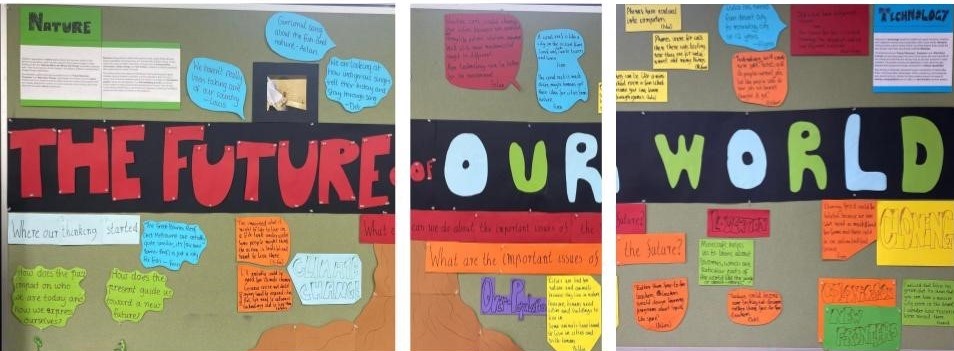Children continue to explore the inquiry research questions – ‘What do we think about the important issues of the future?’ and ‘What can we do about the important issues of the future?’ In response to these questions, their proposals for future change increasingly involve changes to schools. Children are beginning to identify the societal, transformative role of education. This has led to the launch of a mathematics-infused inquiry known as ‘The Future of Education’.
“‘There should be more outdoor learning so that kids get more outside time.” -Esther
“If we are outside more we will be more nature-friendly.” -Eddie
“I think we need to learn more about the sea because it is so big and we don’t know much about it.” -Finn
“Schools should have more technology because it makes learning easier and we learn things like coding.” -Aslan
“Maybe a school could have a greenhouse so we could learn more about how to care for plants, trees and the environment.” -Zara
“If cloning is going to be important in the future we should learn about it so we know how to live with it safely.” -Franek
“Schools should have cloning machines to clone resources instead of buying them.” -Sakura
A Provoking Context
Throughout the year, documentation has shown that when Year 2 children ground their thinking in the future of schooling, it has helped them to conceptualise and visualise potential changes. We, the teachers, believe this is because of the explicit links that the context has to their livelihoods and, therefore, the capacity to view proposed changes as achievable, and foreseeable.
“We can think about how to upgrade our learning and thinking.” -Noah
“It’s good to think about the future of education because it feels like these changes could actually happen.” -Seb
“It’s exciting to think about the fun stuff we could have in schools in the future.” -Sakura
“Schools are what kids do every day so it’s fun to think about what we could be doing in the future.” -Finn
A Mathematical Context
The concept of school also presents many opportunities to authentically explore and deepen ideas through mathematics. The ‘Future of Education’ is being established as a mathematics-based inquiry, which aims to do just that, and also develop students’ maths skills, understanding and disposition. Through workshops, targets and aligned provocations, children will progress through a range of projects including future school timetabling, mapping, lesson planning and statistical investigations. Look out for these projects on SeeSaw when they are completed.
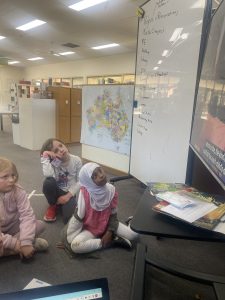
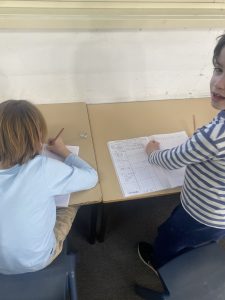
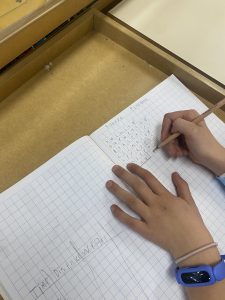
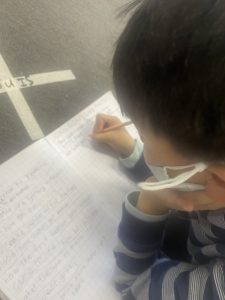
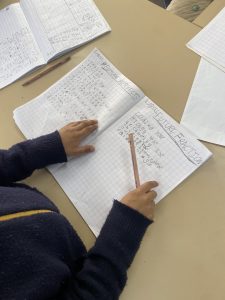
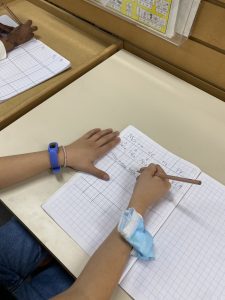
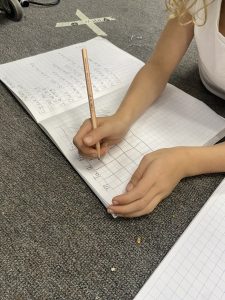
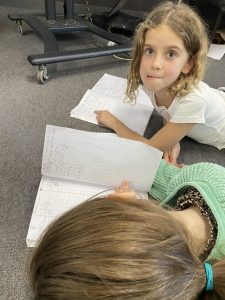
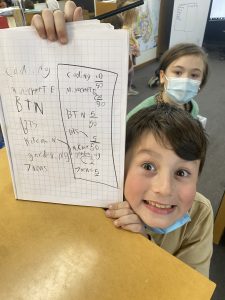
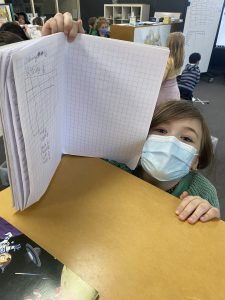
A Context for Wellbeing
The projects aligned to ‘Future of Education’ will be completed in groups that include mixed gender and friendships. This is a continuation of a well-being initiative that began last semester and quickly reached outcomes of children feeling connected to a wider range of peers and developing of collaboration skills. We, the teachers, foresee that exposure to varied and different perspectives and approaches can only promote children’s dispositions toward mathematics.
An added advantage of this inquiry is that student voice about schooling can be captured and, where appropriate, acted upon. One example of this is the introduction of SquizKids, a child-friendly news podcast, which happened after children proposed that they would like the news included in their learning more often. Another proposal that could appropriately be implemented involves more learning experiences happening outdoors. Acting on student’s voice is pivotal to promoting student agency and helping students feel confident and connected within their neighbourhoods.
